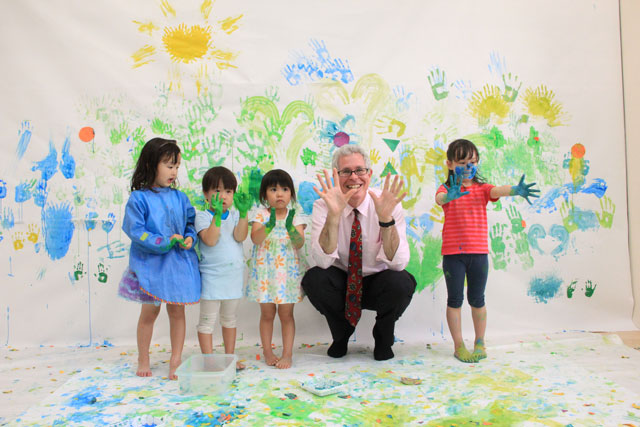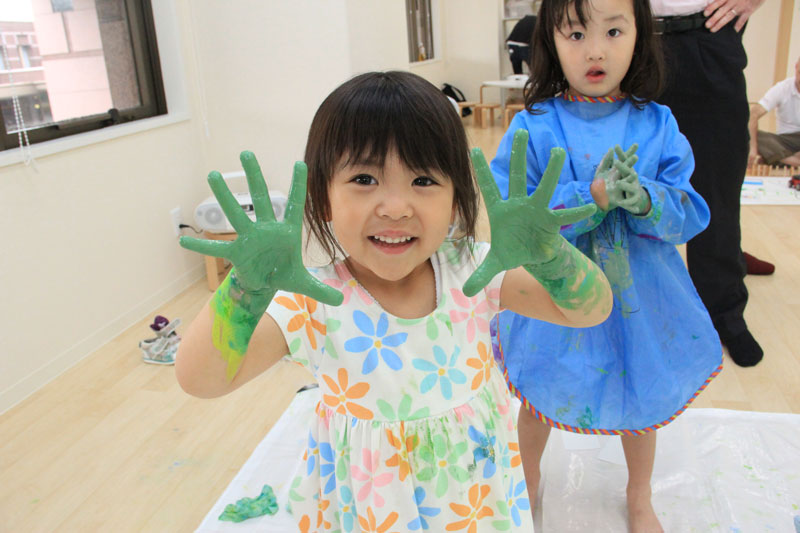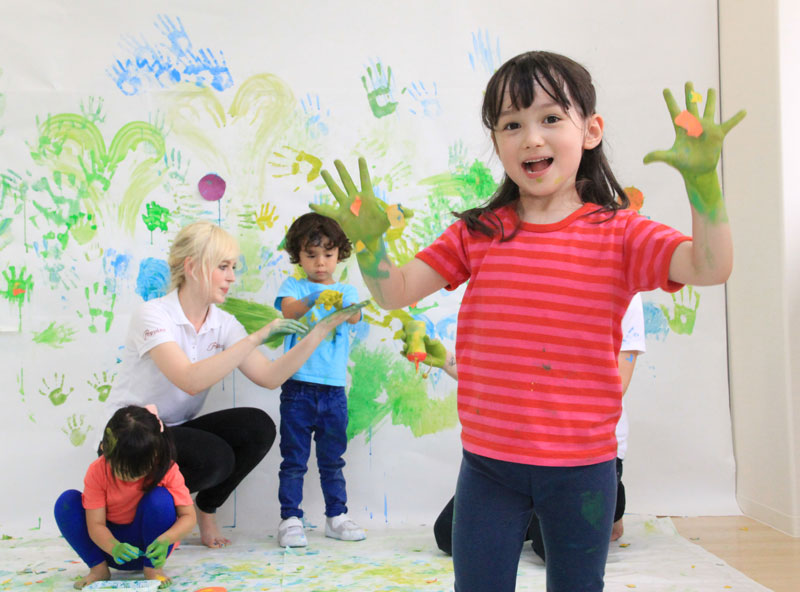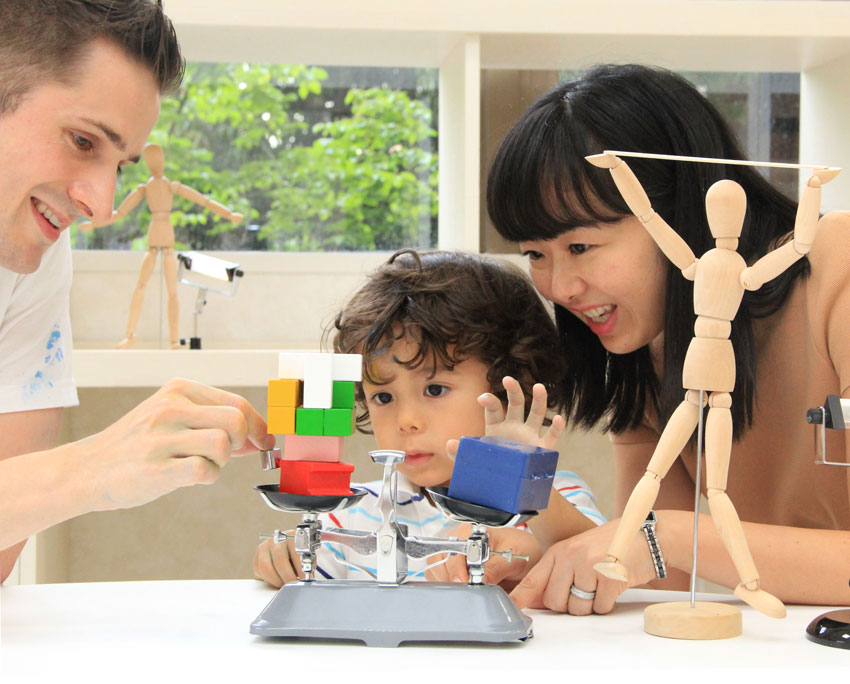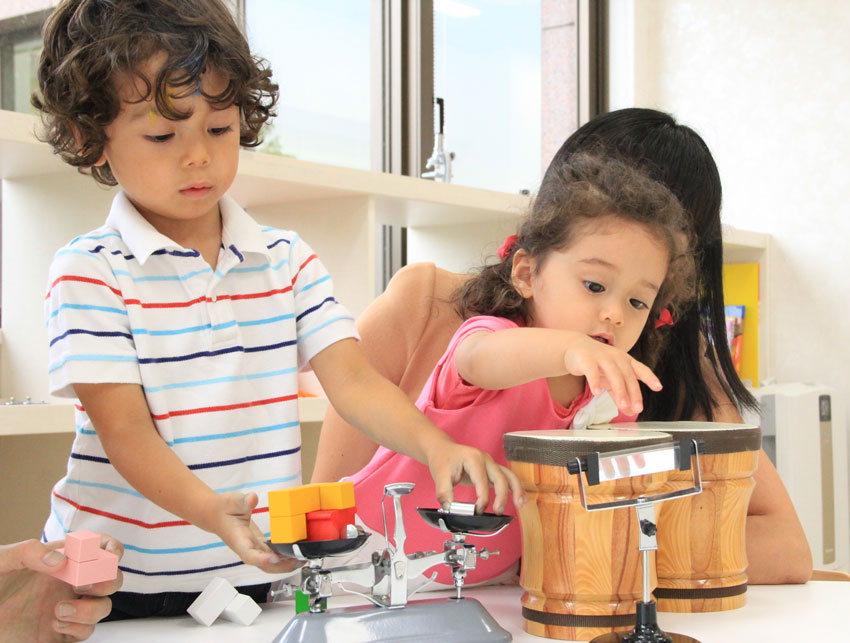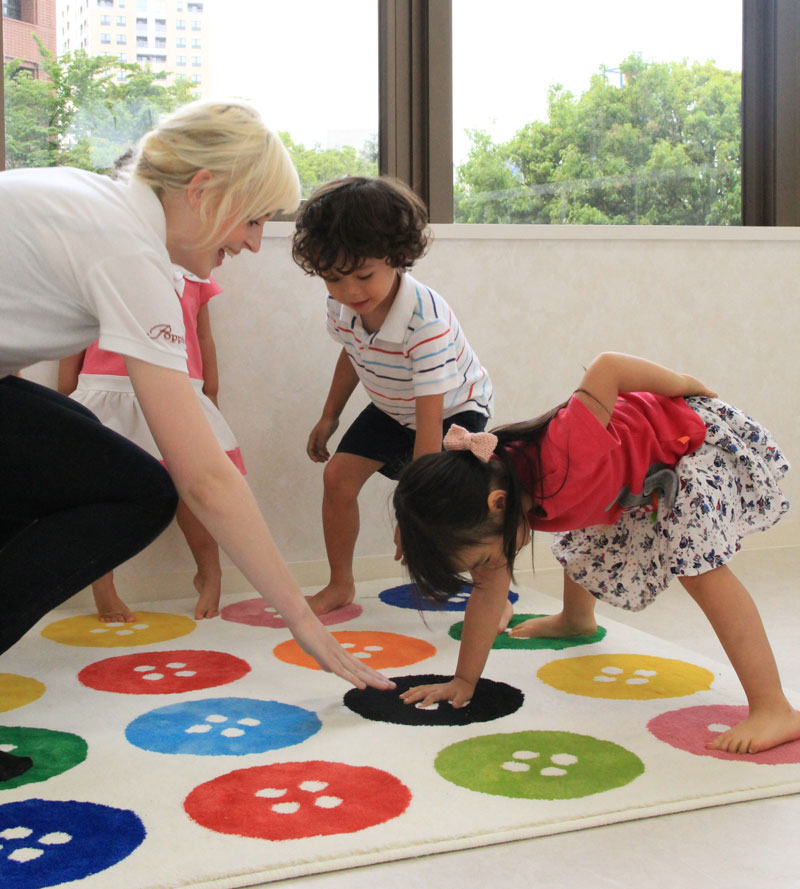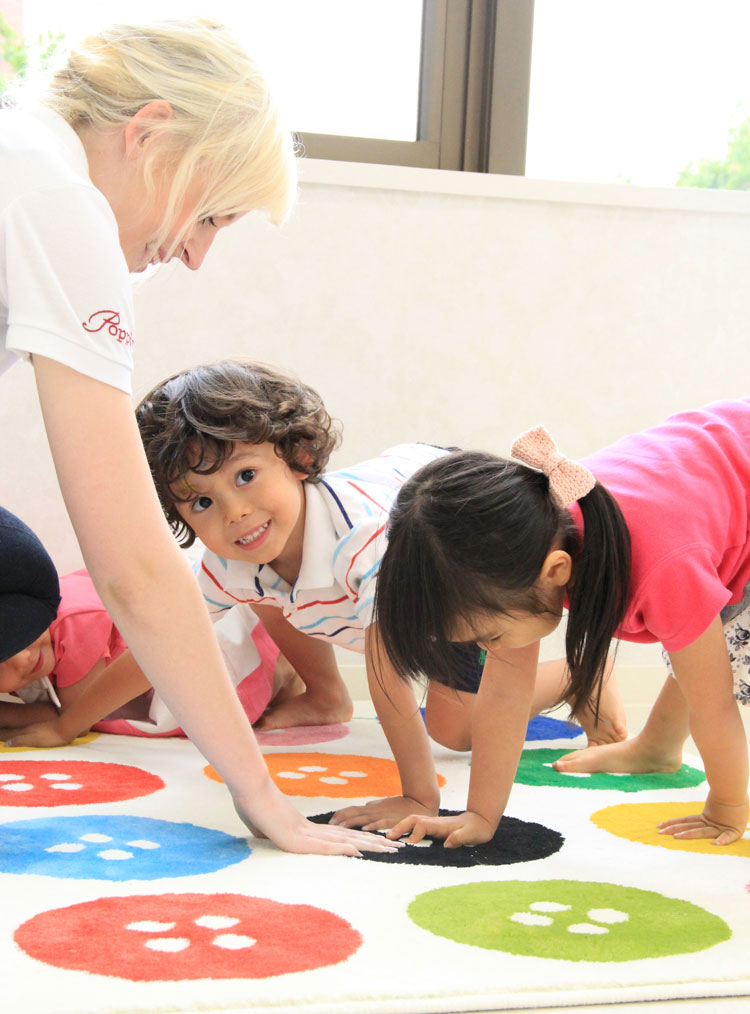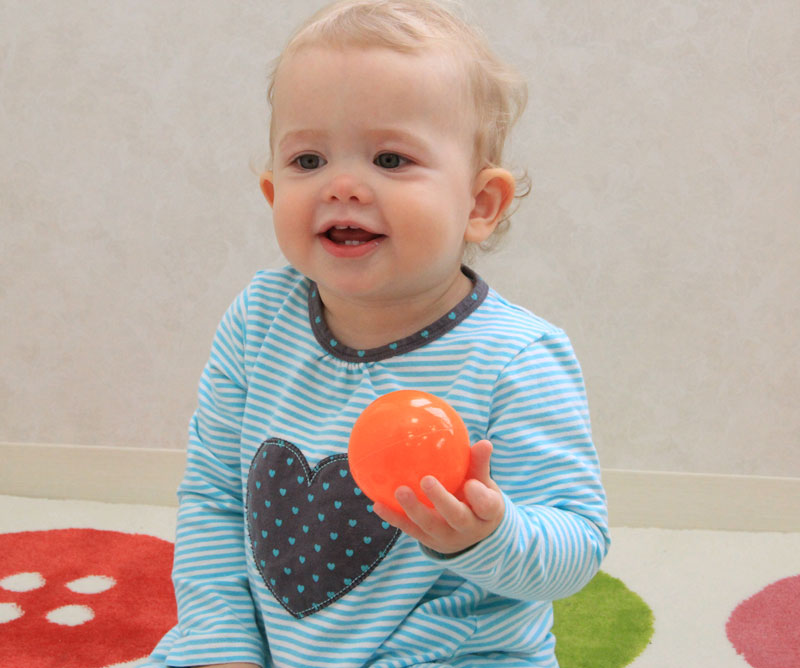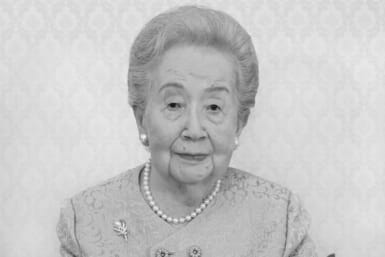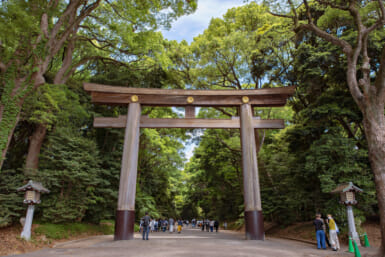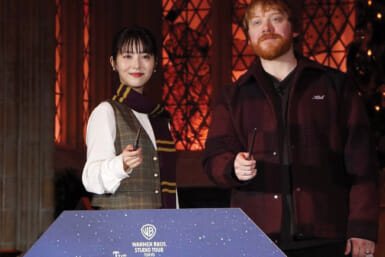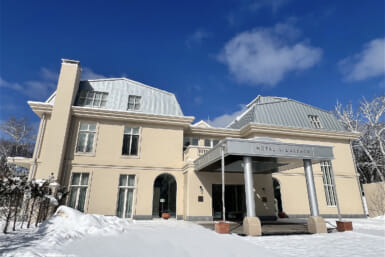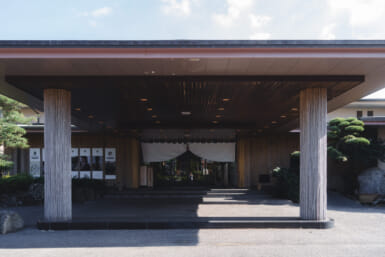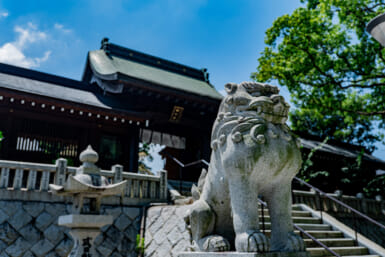Looking into the magic of learning that occurs when cutting-edge research in childhood education is combined with young learners’ sense of wonder.
If you think back to some of the favorite teachers from your childhood, they were probably the ones who brought your classes to life, making the subjects so interesting that you couldn’t keep yourself from being curious about what you were learning. You might even say that there’s something magical about those moments in your education. It’s no surprise, then, that PALIS—Poppins Active Learning International School—takes part of its name from the English governess who was famous for making learning fun.
The Poppins Corporation has always been concerned with “Edu-care”—caring for children’s all-round needs while educating them to their full potential at the same time. For more than 25 years, Poppins has provided professional nanny services and nursery schools for Japanese families, and today has 138 nursery schools in Japan and one in Hawaii. The company’s name has long stood for quality and high standards, supported through links with institutions such as the esteemed Norland College in England. More recently, Maiko Todoroki, director of Poppins Corporation, daughter of CEO and President Noriko Nakamura, recognized an opportunity to combine the school’s traditions with top universities’ academic findings on early learning.
Having been educated in the UK since the age of 12 and as a parent of a nursery-school-age boy, Todoroki saw that many students in Japan “were forced into doing things…I saw situations where young children didn’t have the chance to awaken their individual talents. This inspired me to create an environment where young children could wonder about things, and where they could be helped to discover the world.”
As Principal Bill Ward explains, empowering students to take a proactive approach towards their own learning process lies at the heart of Active Learning, but the fundamentals are never ignored: “We let the children branch off to follow their interests as they explore, guiding them while following the Early Years Foundation Stage Framework as it’s used in England. This includes specific topics, such as Social Growth, Numeracy, and Literacy, which are developed through focus activities and regular face-to-face individual talk. Through this approach young children gradually find out how to negotiate and take responsibility for their learning schedule.”
One unique aspect of the pedagogy at PALIS is the specialist teacher program. For these classes, an expert in a particular subject area—for example, the specialist music teacher is a concert pianist, the art teacher is a graduate of Goldsmiths University of London, while the science teacher worked on NASA projects—visits the class during the week to deliver an age-appropriate lesson to the children, alongside that class’s lead teacher. One of the more popular specialist classes is “Kids’ Yoga,” in which students learn how to use their bodies to make shapes of letters and combine those shapes for phonics practice.
PALIS’s curriculum is made richer thanks to the academic research being conducted at leading institutions in early childhood development. As a part of training and summer programs, Poppins’s staff members attend symposia at Harvard University as well as Stanford University in the United States, where they are exposed to some of the latest ideas in early childhood pedagogy; this constant updating adds depth and innovation to the school’s methodology.
There is a buzz of confidence in the atmosphere at PALIS as children go about their education with confidence and satisfaction knowing that they are learning and discovering.
PALIS will be hosting open-campus events on June 7, 14, and 21.
An eight-week summer program, offering a different learning theme each week, begins July 1 and runs until August 29.
First Day of Summer School will be Tuesday, July 1, for 4 days the first week.
Theme: Summer is Here—Let’s LEARN and have FUN
2nd, Week of Monday, July 7th, 5 days. Theme: Beach Time Fun (Field Trip)
3rd, Week of Monday, July 14th, 5 days. Theme: Sea Animals
4th, Week of Tuesday, July 22, 4 days. Theme: Land Animals vs. Sea Animals
5th, Week of Monday, July 28, 5 days. Theme: Let’s Travel the World—Europe
6th, Week of Monday, August 4, 5 days. Theme: Let’s Travel the World—Asia
7th,Week of Monday, August 18, 5 days. Theme: Let’s Travel the World—Africa
8th, Week of Monday, August 25, 5 days. Theme: Let’s Travel the World—USA
Hours each day: 8:30 am to 15:00
Optional hours: 8:00 to 8:30 am and 15:00 to 19:00
Fees: 15,000 yen per day; 68,000 yen per week.
For more information about PALIS’s summer program or their open-campus events, contact information is below:
Poppins Active Learning International School, Yebisu Garden Terrace Nibankan 1F + 2F,
4-20-2 Ebisu, Shibuya-ku, Tokyo 150-0013
03-5791-2105 (phone) | 03-5791-2106 (fax)
Age range: 11 months–5 years
Email: [email protected]
Web: www.poppins-palis.jp/en/

